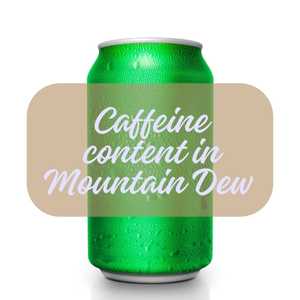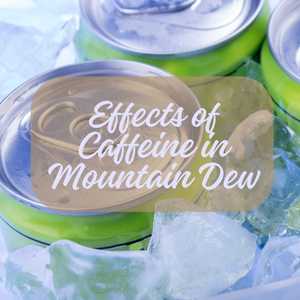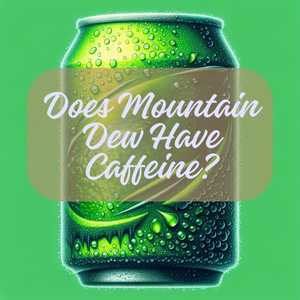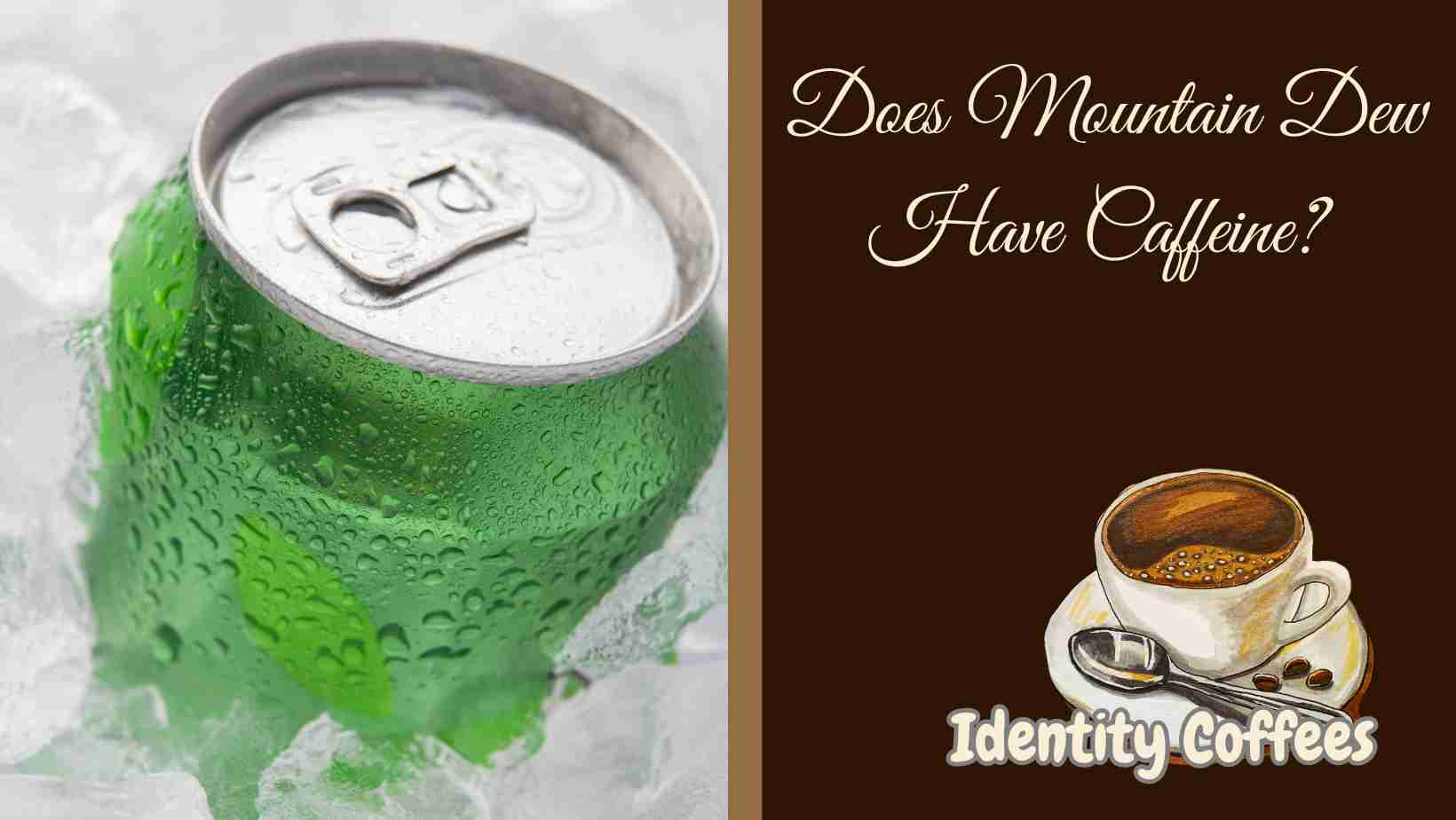If you’ve ever found yourself wondering about does Mountain Dew have caffeine, you’re not alone. It’s a question that has been debated by soda enthusiasts and curious individuals alike. In this article, we’ll explore the presence of caffeine in Mountain Dew and answer some related questions, such as how much caffeine is in it, whether the diet and Zero versions have caffeine, and even if the hard variety contains this stimulating ingredient. Get ready to quench your thirst for knowledge as we set the record straight on whether Mountain Dew has caffeine.
Does Mountain Dew Have Caffeine?
Introduction
Mountain Dew is a popular carbonated soft drink that is known for its unique taste and neon green color. It has gained a devoted following over the years, with fans of all ages enjoying its refreshing flavor. However, if you’re someone who is sensitive to caffeine or just curious about the caffeine content in Mountain Dew, you may be wondering – does Mountain Dew have caffeine?
Caffeine in Regular Mountain Dew
Yes, regular Mountain Dew does contain caffeine. In fact, it is one of the main ingredients that gives the drink its energy-boosting properties. A 12-ounce can of regular Mountain Dew contains approximately 54 milligrams (mg) of caffeine. This amount may vary slightly depending on the specific formulation and the size of the can or bottle you consume.

Caffeine in Diet Mountain Dew
If you prefer the lighter and sugar-free option, good news – Diet Mountain Dew also contains caffeine. Although it is marketed as a diet beverage, it still includes the energizing compound that many people seek in their sodas. A 12-ounce can of Diet Mountain Dew typically contains around 55 mg of caffeine, which is similar to the caffeine content in regular Mountain Dew.
Caffeine in Hard Mountain Dew
Hard Mountain Dew is a recently introduced alcoholic beverage that combines the flavors of classic Mountain Dew with a kick of alcohol. As you would expect, this version of Mountain Dew also contains caffeine. However, it’s important to note that the caffeine content in Hard Mountain Dew can be significantly higher compared to the non-alcoholic versions. The exact amount of caffeine can vary based on the specific brand and alcohol content, so it’s always a good idea to check the label for more details.
Caffeine in Mountain Dew Zero
Mountain Dew Zero is a popular choice for those who are watching their sugar intake or following a low-calorie diet. Despite the absence of sugar, this drink still contains caffeine. The caffeine content in Mountain Dew Zero is reported to be around 68 mg per 16-ounce can, which is slightly higher than the regular and diet versions.
Caffeine Content Comparison
To give you a better idea of how Mountain Dew compares to other popular beverages in terms of caffeine content, let’s take a look at some comparisons. A 12-ounce can of Coca-Cola contains about 34 mg of caffeine, while the same serving size of Dr Pepper contains around 41 mg. Energy drinks like Red Bull and Monster have significantly higher caffeine content, with approximately 80 mg and 160 mg per 16-ounce can, respectively. It’s important to remember that caffeine content can vary by brand and serving size, so always read the label for accurate information.

Caffeine-Free Alternatives
If you enjoy the taste of Mountain Dew but prefer to avoid caffeine altogether, there are caffeine-free alternatives available. Mountain Dew offers a caffeine-free version known as Mountain Dew Caffeine-Free, which provides the same citrusy flavor without the caffeine kick. Additionally, there are other caffeine-free sodas and sparkling water options available on the market that can satisfy your thirst without the energy-boosting effects of caffeine.
Effects of Caffeine in Mountain Dew
Caffeine is a natural stimulant that affects the central nervous system, providing a temporary increase in alertness and energy. When consumed in moderation, caffeine can help improve focus, enhance mood, and increase physical endurance. However, excessive consumption of caffeine can lead to negative side effects such as restlessness, increased heart rate, trouble sleeping, and anxiety. Each person’s tolerance to caffeine can vary, so it’s important to listen to your body and consume caffeine in moderation.

Health Concerns
While caffeine in moderate amounts can offer some benefits, excessive or long-term consumption of caffeine can have negative health effects. These may include increased heart rate, elevated blood pressure, digestive issues, and dependence or addiction. It’s important to be mindful of your caffeine intake and consider any existing health conditions or medications that may interact with caffeine. If you have any concerns about your caffeine consumption, it’s always a good idea to consult with a healthcare professional.
Conclusion
In conclusion, Mountain Dew does contain caffeine across its various versions, including regular, diet, hard, and even the zero-sugar option. The caffeine content can vary slightly depending on the specific formulation and serving size. If you love the taste of Mountain Dew but want to avoid caffeine, there are caffeine-free alternatives available. Remember, moderation is key when it comes to consuming caffeine, and it’s always a good idea to stay informed about the caffeine content in the beverages you enjoy to make the best choices for your health and well-being.

Continue Reading…

